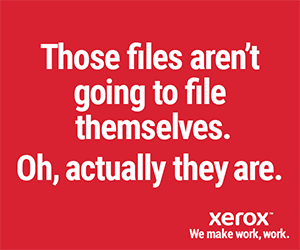
By Jerry Adach, Manager, Web, Data Access & Automation, Ellis Medicine
I have been overseeing Robotic Process Automation (RPA) at my company for just over two years now. Along with financial services, the healthcare industry has been at the forefront of automating manual processes using RPA. My own organization serving the Capital Region of New York state, has successfully automated around 60 processes—some simple, some complex, some background, and some interactive. We’ve automated manual data extraction from third party websites, accounting journal entries, SFTP file delivery using PGP encryption, reading databases and sending SMS notifications based on specific criteria, and posting charges to our financial system.
In just two years, my department has convincingly demonstrated the power of RPA and is now regarded by many as the organization’s “problem solvers” and experts in technology that can make our operations more efficient. Because many of our early successes were of the “low-hanging fruit” variety, however, RPA is still a dark secret to most of the organization’s management team.
Educating Leadership to Appreciate the Strategic Power of RPA
So, once all the obvious processes are automated, what next? How do we go from reacting to very specific departmental use cases to becoming proactive and strategic? The answer is education and awareness. The area responsible for oversight and development of the RPA platform cannot possibly know every workflow and process in the organization and how to evaluate and identify candidates for automation. The management team cannot possibly consider RPA if they don’t know what it is and what it is not.
In the healthcare industry, most decision makers (other than the CIO perhaps) are not reading up on the latest technology breakthroughs or trends related to RPA. It is incumbent on those who believe in RPA to educate leaders of the organization about its potential. Taking every opportunity to speak to leadership on the subject and enumerate the benefits will hopefully stimulate their thought process regarding RPA.
The first audience should be the C-Level leaders. Working through the CIO, and having a solid portfolio of accomplishments, should be enough to get their attention and hopefully an opportunity to demonstrate the power of RPA. Then leaders can do what they do best: acknowledge the technology as a tool that can enhance strategic transformation and empower their managers to use it. It also enables you, as an RPA expert within your company, can continue evangelization and education of your primary customer—department or operation managers.
Identifying Opportunities and Reevaluating
Now, with the C-Level support, RPA analysts should be available to work with managers and help them identify potential use cases for automation. This requires full transparency of workflows/processes and an eagerness to embrace RPA.
As RPA becomes part of your business’s DNA, managers will start evaluating processes within their department that historically would require humans for their potential of improvement using software bots (RPA). As more bots are pressed into service, the number of hours freed up will accumulate. As time goes on and attrition naturally occurs, managers will need to re-evaluate the number of people needed to run the department.
After departmental adoption of RPA, you can then start looking at cross-department processes and when that happens you are entering strategic transformation. All this takes time to mature. During such time, technology will continue to improve, and transition will become easier. However, if you don’t start soon, you will be well behind your competition. RPA is more than a new or improved upon technology. It is a culture change.
Choose Partners Wisely
I recommend reaching out to your current RPA vendor and ask if they will come in and provide a comprehensive presentation of RPA as it relates to your industry. This is not for the vendor to sell. It is for the vendor to educate its customer so that your RPA journey can truly add strategic value to your organization.
We at Ellis Medicine are having our primary RPA vendor come in and educate our C-Level leaders along with other key positions at the hospital in the first quarter of 2020. This was only possible due to our strong portfolio of work and a forward thinking, supportive CIO. I am hoping this will serve as the catalyst to push us to the next level.
If you liked this article, please sign up to RPA Today! Registrants will receive our free weekly RPA newsletter updating you on the most recent developments in the Robotic Process Automation, Intelligent Automation and AI space. In addition to news updates, we will also provide feature articles (like this one) with a more in-depth examination of RPA issues for end users and their enterprises.


